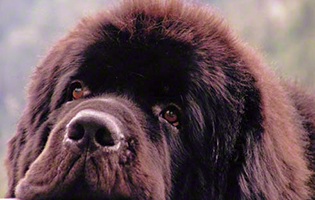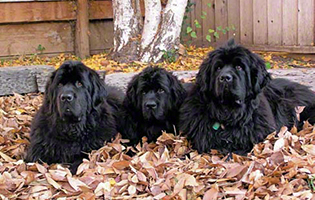Newfoundland puppies are large, gentle giants known for their affectionate nature and impressive strength. However, their exercise needs must be carefully managed during their first year to ensure healthy development and prevent long-term joint issues. Understanding appropriate activity levels for a Newfoundland puppy at different stages of growth is crucial to their well-being.
The Importance of Controlled Exercise
Newfoundlands are a giant breed, and their growth plates take longer to close compared to smaller breeds. Excessive exercise or high-impact activities at a young age can lead to joint damage, hip dysplasia, and other musculoskeletal issues. Instead of high-intensity workouts, a Newfoundland puppy requires moderate, low-impact activities to build strength without overstressing their developing joints.
Exercise Guidelines by Age
8 to 12 Weeks
At this stage, Newfoundland puppies are still adjusting to their new environment and learning basic motor skills. Their exercise should primarily consist of:
• Short, supervised play sessions indoors or in a fenced yard (5–10 minutes at a time, multiple times a day)
• Gentle exploration on soft surfaces
• Early socialization through controlled interactions with other calm dogs
• Basic training exercises like “sit” and “stay” to encourage mental stimulation
3 to 6 Months
During this period, puppies begin to gain coordination and confidence. Their exercise routine should include:
• Short walks: Five minutes per month of age, twice a day (e.g., a 4-month-old should have two 20-minute walks)
• Playtime in a safe environment, avoiding excessive running and jumping
• Basic obedience training, which helps mentally tire them out
• Supervised water play, as Newfoundlands love to swim but should not be overtaxed
6 to 9 Months
At this age, Newfoundland puppies have increased stamina, but their joints are still developing. Recommended activities include:
• Leash walking: Continuing the five-minute-per-month guideline
• Swimming, as it provides excellent low-impact exercise
• Moderate play sessions with well-mannered dogs
• Avoiding stairs and jumping from high surfaces to prevent joint strain
9 to 12 Months
While Newfoundland puppies approach their full size, they are still growing internally. Exercise should still be moderated:
• Leash walking and controlled off-leash time in a secure area
• Water activities, but avoiding overexertion
• Light hikes on soft, even terrain
• No forced running or excessive jumping, as growth plates are still closing
Signs of Overexertion
Newfoundland puppies may not always show when they are tired, so owners should watch for signs of overexertion, such as:
• Limping or stiffness after exercise
• Reluctance to move or get up
• Excessive panting or fatigue
• Lagging behind on walks
Final Thoughts
Appropriate exercise is essential for a Newfoundland puppy’s physical and mental well-being. A balance between gentle activity and sufficient rest will help ensure healthy growth and development. By following these guidelines, Newfoundland owners can set their puppies up for a lifetime of good health and mobility.
For more information on this topic please see:
Puppy Fitness that Fits the Puppy

